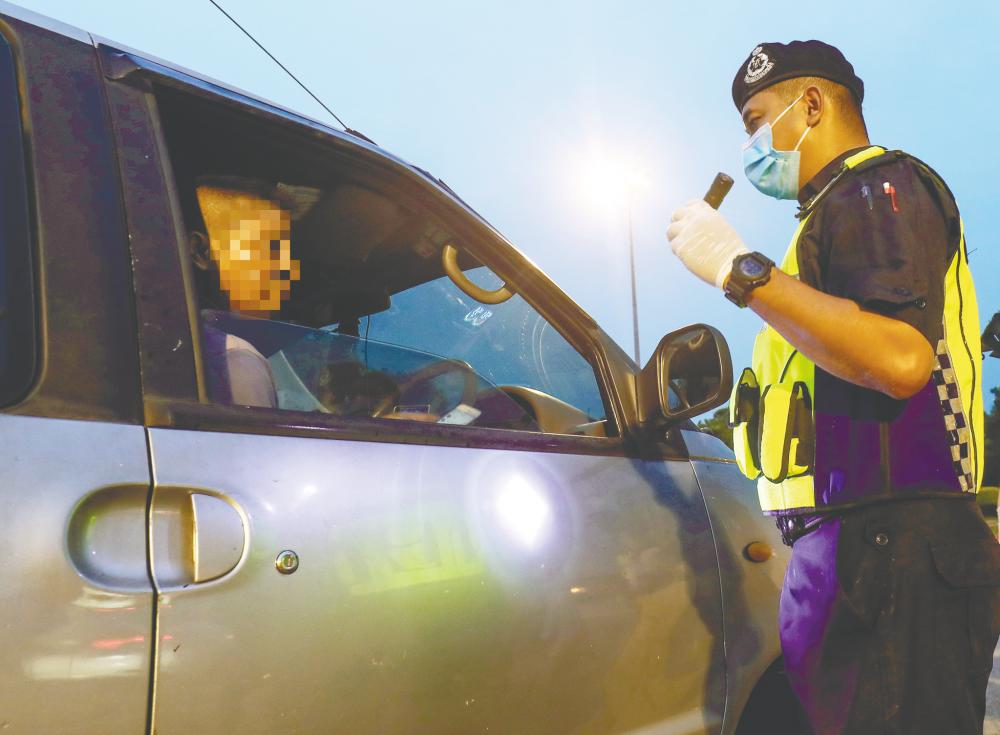PETALING JAYA: Universiti Tun Hussein Onn Malaysia Faculty of Engineering Technology senior lecturer Dr Nurrul Hafeezah Sahak has urged authorities to lower Malaysia’s legal blood alcohol concentration (BAC) limit from 0.08% to align with the World Health Organisation’s (WHO) recommended standard of 0.05%.
She explained that the current limit can still impair a motorist’s concentration, perception, speed control and short-term memory, contributing to road crashes.
“This figure exceeds WHO’s recommendation, which has been shown to reduce road crashes causing death or injury by 18%, demonstrating the potential for significant improvement in drink driving incidents,” she said, adding that an intoxicated driver is 13 times more likely to cause a crash than a sober one.
A National Health and Morbidity Survey revealed a decline in alcohol consumption among Malaysians aged 18 and above, dropping from 12.8% in 2011 to 7% in 2022.
However, Kuala Lumpur recorded a significantly higher rate of 12.1%.
“What is alarming is the survey’s findings that over half of the drinkers obtained alcohol from family members, 65% had their first drink before the age of 14 and 86% have peers who consume alcohol,” Nurrul Hafeezah added.
She highlighted the financial and human costs of road traffic fatalities, estimating an average cost of RM1.2 million per fatality, RM120,000 for severe injuries and RM12,000 for minor ones, factoring in lost productivity and victim compensation.
“Beyond the financial toll, the human cost is immeasurable, with lives lost and families devastated,” she said.
Home Minister Datuk Seri Saifuddin Nasution Ismail reported that between January 2021 and September 2024, 149 drink-driving cases involving road crashes were prosecuted under Section 44 of the Road Transport Act 1987.
Convictions for fatal drink-driving incidents carry severe penalties, including 10 to 15 years imprisonment and fines of RM50,000 to RM100,000.
For cases involving injury, offenders face seven to 10 years imprisonment and fines of between RM30,000 and RM50,000.
Nurrul Hafeezah recommended adopting effective models such as South Korea’s chauffeur services, which have significantly reduced traffic fatalities by providing safe transport for intoxicated motorists.
She also advocated the installation of driver-monitoring technologies such as alcohol ignition interlocks, which measure alcohol levels in the driver’s breath and prevent the vehicle from starting if intoxication is detected.
Nurrul Hafeezah proposed adopting stricter penalties akin to those in Canada, where life imprisonment is enforced, or those adopted in the UK, which imposes up to 14 years’ imprisonment with an unlimited fine, and penalties in Taiwan, where the death penalty is permitted for fatal drink-driving cases.
She pointed out that while e-hailing services provide alternatives for drinkers, designated driver programmes remain limited, with challenges such as cultural norms, high costs and availability in rural areas hindering broader adoption.
“Public awareness campaigns play a critical role in reducing drink-driving incidents. In Western countries, large-scale ‘Don’t Drink and Drive’ campaigns are conducted via radio, television, billboards and school programmes, but such initiatives are rare in Malaysia,” she said.
Malaysian Institute of Road Safety Research chairman Prof Dr Wong Shaw Voon stressed that drink driving remains a leading cause of preventable road crashes, with often tragic consequences for drivers, passengers and bystanders.
He highlighted the importance of addressing drink driving to achieve the United Nations Sustainable Development Goals (SDG), particularly SDG 3.6, which aims to halve road crash fatalities, and SDG 11.2, which promotes safe transport systems by 2030.
“Drinking is a personal choice, but it comes with responsibility. Choosing never to drink and drive is a simple decision that can save countless lives,” Wong said.
He also called for stricter penalties, 24/7 road surveillance to deter offenders and collaboration between the beverage industry, local authorities and establishments serving alcohol to encourage responsible drinking practices.









